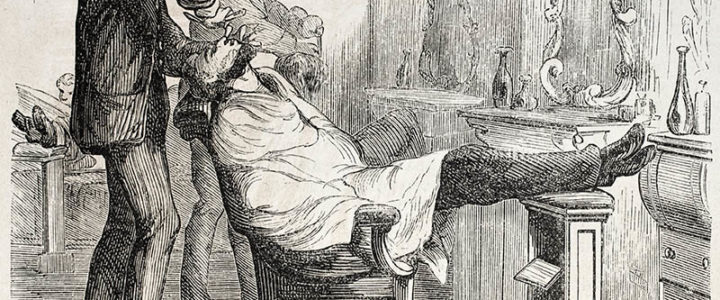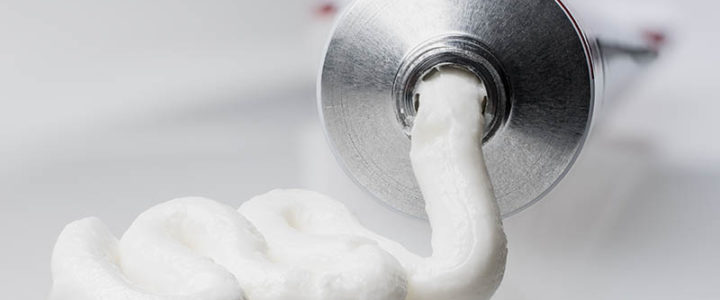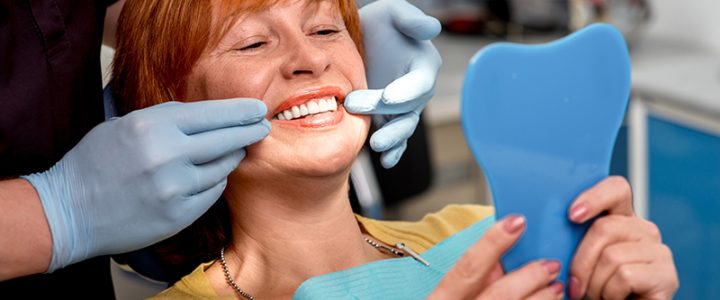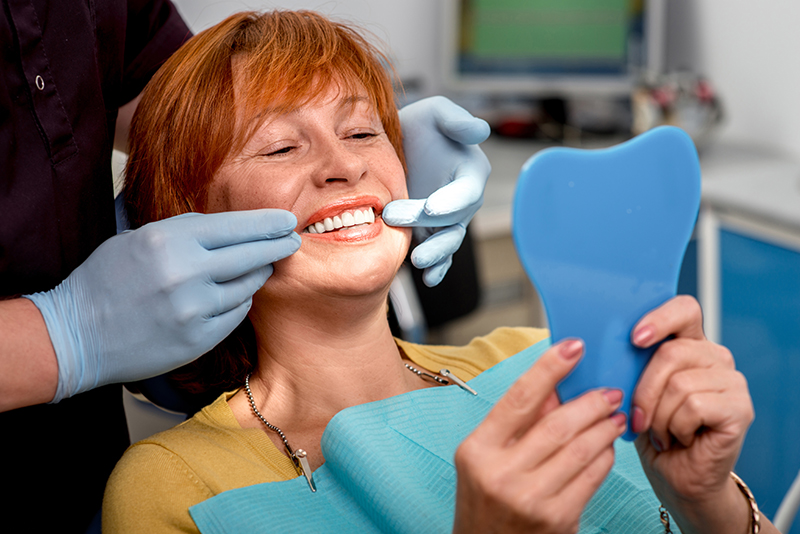Like every other part of our bodies, our mouths change as we age. As the carefree days of youth fade you may be faced with new challenges when it comes to your oral health Read more
Dental Care Concerns for Seniors


Like every other part of our bodies, our mouths change as we age. As the carefree days of youth fade you may be faced with new challenges when it comes to your oral health Read more

Like an orthodontist or a periodontist, a prosthodontist is a type of dentist who has received specialized training in a particular type of dentistry. After completing their education in general dentistry Read more

Despite what some people seem to think, a hygienist’s greatest desire is not to scold patients. A dental hygienist’s greatest desire is to see healthy mouths free of tooth decay and dental disease. Read more

As dental professionals, our ultimate goal is for every one of our patients to live their whole lives without losing their teeth. However, in the unfortunate situation that a patient is missing their teeth, dentures are a great solution to return a smile to beauty and function. Read more

If your teeth are cracked, stained, or otherwise damaged, cosmetic dentistry can greatly improve the appearance of your smile. Dentists use crowns, bridges, implants, onlays and veneers for smile makeovers, Read more

Ancient Sumerian people believe cavities and tooth decay are caused by “tooth worms”. This belief persisted for centuries and in many different cultures. Treatments included trying to lure out the worm with honey and magic spells and potions.
The inscription on the tomb of an Egyptian scribe named Hesy-Re is the first known reference to someone as a dental practitioner. He is honored as “the greatest of those who deal with teeth, and of physicians.”
Both Aristotle and Hippocrates wrote about dentistry. They mention identifying the pattern in which adult teeth come in, stabilizing the teeth and jaw with wire, and methods for tooth extraction.
An ancient Chinese medical text includes an early mention of silver fillings. The text refers to a silver paste, which would have been quite similar to the amalgam used in modern dentistry.
If you had a toothache in the middle ages, you’d go to your barber. During this era, barbers dealt with far more than just hair and were practically medical professionals. Extracting teeth was a normal and accepted part of their job description.
In Germany, a book titled Little Medicinal Book for All Kinds of Diseases and Infirmities of the Teeth by Artzney Buchlein is the first known book exclusively about dental medicine. Topics addressed include placing gold fillings, tooth extraction and oral hygiene.
French surgeon Pierre Fauchard publishes The Surgeon Dentist, A Treatise on Teeth, the first comprehensive guide to dental care ever written. He is considered the Father of Modern Dentistry because many of the book’s ideas regarding oral anatomy, restoring teeth and creating dentures are the basis of the practice of dentistry moving forward.

We’ll bet the early history of dental care and dentists in the United States is far more interesting that you would have guessed, filled with famous names and genius innovations. While the technology and discoveries that led to modern dentistry happened all over the world, many notable firsts took place in the United States. Read more


When it comes to dental insurance, or insurance in general, many of us are quickly baffled. There are so many different types of plans & unfamiliar vocabulary that it often feels like trying to learn a new language. However, there is one important concept about your dental insurance that you should absolutely know, & it can save you money! Read more

 As your dental clinic, it’s our responsibility to help guide you through your oral health care so it is as easy & affordable as possible. As a result, we’re dedicated to helping you make the most of your dental insurance, ensuring you get the care you need & you take advantage of every benefit available to you. Read more
As your dental clinic, it’s our responsibility to help guide you through your oral health care so it is as easy & affordable as possible. As a result, we’re dedicated to helping you make the most of your dental insurance, ensuring you get the care you need & you take advantage of every benefit available to you. Read more

 Whether you’ve lost teeth to decay, periodontal disease or an accident, we know that having a missing tooth can be embarrassing, inconvenient & often very uncomfortable. Luckily, there are many options for restoring your teeth, but with so many options, there is also some confusion. In this post we’re going to break down the choice between dentures & dental implants for replacing missing teeth.
Whether you’ve lost teeth to decay, periodontal disease or an accident, we know that having a missing tooth can be embarrassing, inconvenient & often very uncomfortable. Luckily, there are many options for restoring your teeth, but with so many options, there is also some confusion. In this post we’re going to break down the choice between dentures & dental implants for replacing missing teeth.
Dentures are a set of false teeth that fit over the gums (full dentures) or clip into place on existing teeth (partial dentures). You can get dentures for your upper teeth, your lower teeth, or both. Dentures also have a gum-colored acrylic base that can be matched to the color of your actual gums to look natural.
Dental implants are an artificial tooth root made from a titanium metal post. The implant is inserted into the bone of the jaw under the gums, where it can act as the foundation for an artificial tooth, called a crown, to be permanently attached with a dental cement. Dental implants have ridges on them that make them resemble screws. The purpose of these ridges is actually to give the bone of your jaw more surface area to hold onto & grow around, a process called osseointegration. Once in place, dental implants & crowns are nearly indistinguishable from natural teeth & function just like them too.
Ultimately, most dentists will strongly encourage the use of implants for replacing missing teeth. Dentists know that dental implants are the best choice for both your oral health & your comfort. As much as we think about teeth on a daily basis, we don’t want you to have to think of yours constantly! Once a patient’s implants are placed & healed, they can return to a life with a fully functional smile.
Like any dental procedure, your choice of which treatment to undergo & the results you can expect all depend in your individual dental condition. When we make a recommendation of treatment for replacing missing teeth, we take your current oral health, your health history, your ultimate goals & your financial preferences into account. If you’re interested in either dentures or dental implants, please arrange a consultation with us.